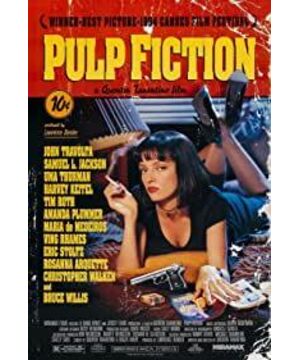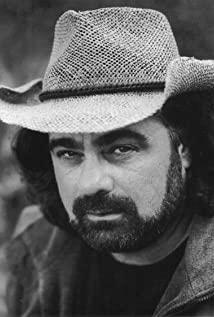I want to talk about the biblical meaning of this play. This play disrupts the surface narrative structure, but I don’t think this play violates or disrupts the biblical structure.
We might as well follow the clues of the three core stories to see the clues.
In the first scene, Pumkin is about to rob, in the second scene, Jules and Vincent drive to kill people, and in the third scene, Marsellus makes Butch cheat.
This is the beginning of three short stories. The core of these three beginnings is one thing: the beginning of sin.
What happened next in the sequence of the plot, Butch did not cheat and ran away, but by chance they met Marsellus, and the two were caught by the pawnshop owner and wanted to burst. Vincent accidentally shot Marvin to death in the car, and the two had to find a way to clean up the mess. Pumkin grabbed Jules' head, and Jules pointed a gun at his neck.
What is this called, suffering.
What's the ending? No one from Butch ran. He saved Marsellus, and the two of them were relieved. Pumkin was let go by Jules and ran away with Bunny. Jules is even better. He let go of Pumkin, and decided to wash his hands in the golden basin to pursue the truth.
What is this called, salvation.
Note that the order of sin-suffering-salvation is not only complete, but the time in the movie is not disrupted. It is not about redemption first and then suffering, or suffering first and sin afterwards. It still follows the U-shaped structure of the Bible strictly.
Pulp fiction, then, is a collaged melodrama, and it has not changed the U-shaped structure of melodrama since Shakespeare. It even directly echoes the Bible like Shakespeare: Jules never forgets Ezekiel 25:17, which appears twice in the opening and closing credits, which is an extremely obvious manifestation of its biblical significance.
What I care about is, why a violent and bloody movie full of dirty words (this is an objective fact, I have no derogatory meaning), will win 200 million US dollars at the box office at a cost of 8 million? So many viewers, just because they praised its violent and bloody dirty words, or praised its collage, or praised its black humor, etc., do they like this drama? In my opinion, the biggest reason for the success of such a play is not the gimmicks it makes people like, but its non-contradictory nature: the biblical meaning.
Furthermore, I want to know, or I have such an idea that I have almost affirmed: the biblical meaning represented by this biblical structure is the most easily accepted by Westerners, and even by the vast majority of people. This is also the difference between Larys von Trier and Quentin: the former’s most recent play is called Antichrist, haha, goodbye to the box office, no matter how good you are on the surface.
Having said that, at least this structure will determine that this drama is a comedy, and it is a good-looking, comedy.
View more about Pulp Fiction reviews











